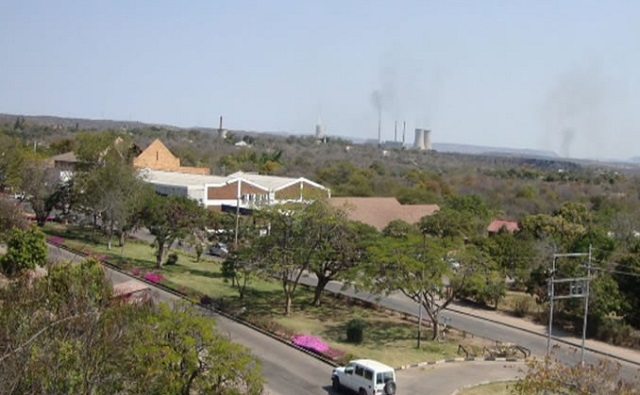To sell or not sell Hwange town?

Fairness Moyana in Hwange
HWANGE Colliery Company Limited (HCCL) is in the spotlight again following last week’s suspension of its managing director, Engineer Thomas Makore, who is accused of insubordination and unethical conduct including corruption. Coming at a time when the loss making company is facing serious viability challenges, stakeholders have been equally baffled by the proposal by the company, about two weeks ago, to sell off its town for $300 million as part of its efforts to offset its huge debt and recapitalise operations. The move has generated a lot of debate among business minds and ordinary people in Hwange and across the country.
According to HCCL, the $300 million would be used to among other obligations, to offset over $70 million it owes employees in salary arrears dating back to five years. HCCL chairperson for the technical committee, Mrs Ntombizodwa Masuku, made this proposal before a parliamentary portfolio committee on Mines and Energy. Although the ailing firm has reported positive production growth in the first quarter of 2018, it appears this has not translated to improved welfare for workers as financial challenges continue. The company remains in a precarious financial position after reporting a $43.84 million loss in 2017 compared to $89.91 million in 2016. The announcement has come as a shock to Hwange residents who rely on the company for livelihood with disgruntled workers expressing disappointment at the move.
“We are surprised that the company has decided to take this route. The implications that will follow will affect the residents. As workers we thought the company will forge ahead with plans to sell houses to workers as part of covering the salary debt owed to them,” said a former worker who preferred to be identified as Mr Ngwenya.
“The move will have negative effects on us as we have relied on the company for accommodation since we have not been able to build our own houses as we have gone for years without pay.”
Another worker felt the company’s intentions were ill conceived arguing that selling off the town would create problems in the company’s ability to attract and retain skilled labour as they will be forced to source accommodation elsewhere,” said the worker who declined to be named.
“I think this move is ill-conceived given that Hwange Colliery Company is still mining and will continue to employ. Workers need to come and find readily available accommodation and it’s an area that the company has also used to attract skilled labour challenges for employees. The company should reconsider the implications associated with the plan.”
An official from the Amalgamated Mine Workers Union of Zimbabwe who also preferred anonymity said:
“The cost cutting measures by the company do not seem to be working as they have not helped the situation. It is the norm that when decisions that affect workers are made the workers are not consulted.
“This is something that we have tried to engage management about. Selling the town is not a good idea at all and the general feeling is that it will have long lasting negative implications.”
Residents who include serving workers cried foul over the state of the houses, which they described as dilapidated. They complained that the company has of late been struggling to provide critical services such as water, sanitation and road repairs as a result of the economic challenges. Two years ago HCCL closed down some of its wards at its private hospital and most of its clinics in the concession area citing failure to sustain operational costs.
However, some members of the community said the move to sell the town was long overdue arguing that the decision will give the ailing company room to urgently revamp its operations and scale up production.
“It was expected. I would say it was long overdue. What has the colliery to do with town services? This development will not only help it offset its huge debt but will give it the much needed capital injection to return to profitability,” said a labour activist who requested anonymity.
Local businessman, Mr Rodrick Hwaire weighed in arguing that selling the town infrastructure was a good move as it would translate to increased productivity for the mine instead of grasping to run the town and mining at the same time.
“I think it’s a good move to sell the properties with regards to given value. If the town is no longer related to the houses, it will lose value. A case in point being the NRZ properties. However, the development has to be planned to avoid accommodation crisis for employees who are engaged by the mine. With regards to workers they should be given first preference to be able to buy the houses,” he said.
Last year the company hinted that it wanted to sell off part of its 5 000 houses to employees as part of offsetting the salary backlog it owes its workers. An evaluator was reported to have been engaged by the company to determine the value of the properties. However, the process of disposing the houses was still to be approved by the shareholders through the board.
HCCL has an array of assets that includes 5 000 houses accommodating its workers and former employees in the mining town. Among other challenges, the firm has legacy debts, frequent breakdown of equipment and high production costs, which were causing the company to fail to break even. At present, HCCL is operating under the scheme of arrangement, which creditors agreed to in May 2017 but its struggling to improve its financial base to recapitalise operations.
It is hoped that the scheme of arrangement is a stepping stone towards the settlement of its more than $350 million debt. Workers had opted for judicial management as opposed to the scheme of arrangement but lost the bid at the courts. As part of the contractual provisions under the scheme of arrangement, HCCL has to ensure partial monthly disbursement of outstanding wages to its workers.
Due to operational challenges that the company continues to face, HCCL was early this year involved in a labour dispute with its workers, which saw their spouses protesting against management. The employees claim they have not been paid for three years. Wives of the stranded workers have continued to demonstrate at the company’s premises since January this year vowing to remain there until their demands were met. HCCL is a strategic entity in the economy. Experts say its demise will have a negative effect on companies that rely on its supplies including power generation.











Comments